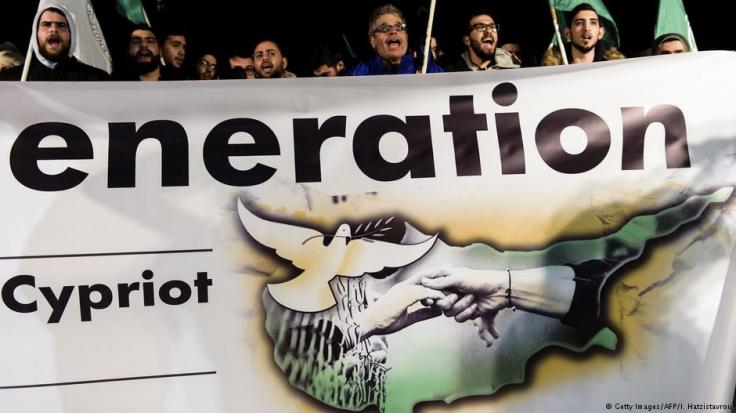Cyprus talks enter crucial security phase

Top international diplomats are heading to Geneva as talks seeking to reunify the divided island of Cyprus enter a crucial stage. Territory and security issues are some of the remaining hurdles to a peace deal.
UN-mediated talks to reunite the divided island of Cyprus enter a crucial stage on Thursday as the focus switches to security issues, following three days of intense talks between Turkish and Greek Cypriot leaders in Geneva.
In a sign of how high the stakes are, UN chief Antonio Guterres will make his first foreign trip to Geneva since becoming secretary general on January 1. The foreign ministers of the so-called guarantor powers -- Britain, Greece and Turkey -- also arrived for sensitive talks over security on a future bi-communal federation on the island.
"I really think that, without overdramatizing what is happening in Geneva, that this is the very last chance to see (a solution for) the island being imposed in a normal way," European Commission president Jean-Claude Juncker said before departing to Geneva on Wednesday night.
EU member Cyprus has been divided between a Turkish north and internationally-recognized Greek south since 1974, when the Turkish military intervened after a junta in Athens orchestrated a Cypriot coup to unite the island with Greece. Only Ankara recognizes the Turkish north.
Greek Cypriot President Nicos Anastasiades and his Turkish Cypriot counterpart Mustafa Akinci have expressed optimism that peace talks that began in 2014 could yield a peace agreement to solve one of the world's most intractable geopolitical issues.
The two sides have overcome many issue areas, leaving the key sticking points of territorial boundaries and security to the end.
Inter-communal violence and the Turkish intervention displaced tens of thousands of people, mostly Greeks. While Turks made up about 18 percent of the population in 1974, the Turkish military intervention left them in control of about a third of the island's territory.

Failure to reach agreement on territorial boundaries and population transfers in an earlier round of talks in November sent the two sides back to the drawing board. On Wednesday, Greek and Turkish Cypriot sides presented maps describing the borders of a reunified country for the first time, UN envoy Espen Barth Eide said.
The two sides are very close to reaching agreement on what amount of territory will remain under Turkish administration. Redrawing the border could displace some communities from their current homes - some for the second time since the 1970s.
A major sticking point remains Morphou, a town currently in the Turkish-controlled north. Anastasiades has said there can be no deal without a full return of the town, while Akinci has said he would not agree to a deal that would uproot 18,000 Turkish Cypriot residents for a second time in 42 years.
